Obituary: Andrew Laptew: Police Officer
by TIM HICKS
~~~~~
I was deeply saddened when NYE contributor Chris Clark told me that Andrew Laptew had died of cancer.
I have studied the Yorkshire Ripper case for many years and in my opinion he was one of the few police officers to emerge from the case with any credit. I admired him as a first class detective who did his best, despite operating within an investigation that suffered from a failure of leadership. If he had been listened to, Peter Sutcliffe would have been arrested much earlier, saving at least three lives. He was a lion led by donkeys.
Andy’s story and the story of the Yorkshire Ripper investigation can be seen in the documentary The Hunt for the Yorkshire Ripper. (Andy appears at 58 minutes, 1 hour 28 minutes and 1 hour 33 minutes).
Andy was also let down by journalists who, knowing that he was inexperienced in dealings with the press, exploited this lack of experience and twisted his comments. Although they knew that this would have enormous repercussions, they did nothing to protect the source of their information. Resulting in the destruction of his career and damage to his health.
Chris knew Andy and corresponded with him on some of the cases he is working on. Andy was very badly affected by the failure to arrest Sutcliffe and the treatment he received from some of his colleagues in West Yorkshire Police.
Some of their correspondence is reproduced below:
Hi Andy.
I know that it is some while since we have spoken but I just wanted you to know that the public hold you in high esteem. As we both know serving in the police force doesn’t necessarily mean that the cream rises to the top (Keith Hellawell an exception. John Stalker another). When I look around during the era of particularly the 1970s there were numerous bad decisions made by inept guvnors around the UK.
In your case you have nothing to reproach yourself about in not nicking Peter Sutcliffe as both your hands were tied behind your back. The guilt was and should remain with Oldfield, Holland and Hobson who all lacked direction and purpose. I also feel that The Home Secretary should have ordered in The Super Squad including Stuart Kind at a much earlier stage to review the cases.
You can hold your head up high along with Keith Hellawell for being an honest guy doing the job to the best of your ability. I am proud of you for the way you dealt with all the shit which came your way in the aftermath. Well Done Andy.
Fond Regards.
Chris.
His response is below:
Hello Chris,
Many thanks you for your kind and encouraging words. It means a lot to me when my own peer group make the effort to support me.
Kind regards
Andy L
I am one of the members of the public that hold him in high esteem.
Andy’s story is skillfully told in this article by Mark Davis of Northern Life:
The Yorkshire Ripper and Me
By Mark Davis
Andy Laptew was one of the police officers involved in the hunt for the ‘Yorkshire Ripper,’ whose trail of murder stunned the nation in the 1970s and 80s. When Andy raised his strong suspicions about Peter Sutcliffe, they were brushed aside and Andy was left humiliated. Sutcliffe went on to kill again before he was finally caught, but the repercussions left Andy shunned and depressed. Now retired and a voluntary guide at Bradford City Hall and Police Museum, Andy spoke to Northern Life’s Mark Davis.
I am here to talk to Andy about his encounter with ‘Yorkshire Ripper’ Peter Sutcliffe, who up to 35 years ago held the north of England in a state of fear, but first we chat about his early days with Bradford City Police after he joined in 1971.
It was a good job because when you went into it, you wanted to do good, make a change. I was working from this town hall. There were three basic shifts – six to two, two to ten and ten to six. You never really slept properly, but it went with the territory.
It was in the days before the Police and Criminal Evidence Act. You had poetic licence, you did rule the roost, and if people didn’t do what you requested they were arrested.
There was a lot more leeway but it was the nature of the job. You didn’t have today’s support, the technology, the tasers, extendable batons, the CS spray. You didn’t have all that sort of stuff so you really had to live on your wits. If somebody came too close to you, you’d warn them not to come any closer or you’d hit them, and that was self-preservation because after you’ve been headbutted a couple of times you’re on the defensive.
You weren’t expected to just strut about on the streets and look good. You were expected to get results, i.e. report motorists, make crime arrests, in effect earn your keep. They’d look at your notebook and say: ‘You’ve not been doing much this month, you need to be doing more.’ Your first two years were probationary, and if you weren’t pulling your weight you were finished.
After eight years as a uniformed PC – “A woodentop”, as the higher echelons in CID called us – Andy joined CID, dealing with mundane day-to-day crimes, one of which provided a satisfying collar for him.
It was the theft of dustbins, and I got my leg pulled – ‘That’s all you’re worth’. But I Iooked up the suspect’s details and discovered he was wanted for rape in London. He was working at the Shoulder of Mutton pub down the road, and I told him ‘You’re being arrested for theft of dustbins’. ‘Oh yeah’, he said. ‘And by the way you’re also being arrested for rape in The Met.’ I can’t repeat what he said. He’d been on the run for three years. That was something from nothing. It was a good lift.
I never thought the Ripper investigation would snowball like it has done. I always considered myself an ordinary provincial cop doing a job, but meeting with Sutcliffe it did ring alarm bells with me. There were too many coincidences with the suspect and with Sutcliffe. There were too many cross-area sightings. The reason for visiting Sutcliffe pertained to sightings of a single male who had been seen driving through prostitute areas of Manchester, Leeds and Bradford. There were too many red flags, too many alarm bells.
I was on the inquiry from the beginning, as a PC on the Task Force, when Wilma McCann was murdered at Leeds. I worked on that, saw the pictures, searched the scene, then Emily Monica Jackson was murdered, in Chapeltown.
There were briefings and so I built a comprehensive picture right from 1974 up to when I got promoted in 1980. I was constantly on the alert. Every time there was a scream, or a cry in the night, we thought could this be another victim and we were out searching areas.
Andy was sent to interview Sutcliffe to follow up multiple sightings of a Ford Corsair car driven by a lone male with no passenger, and he was uneasy about the demeanour of Sutcliffe and wife Sonia.
They were an odd pair. Usually when we went on interview, as an ice breaker we’d tell the wife: ‘Now’s the chance to get rid of your husband’. You’d get a laugh, some reaction or other, and one bloke once threw me out of the house. There was always some reaction. But from those two, nothing. Not a bloody thing.
I think Sonia is in her own little world, and anything that impinged into her little world from outside was of no interest to her.
Far from getting any feeling of underlying evil, Andy’s first impression of Sutcliffe was: “Unremarkable, a bit of an idiot.”
Andy recalls:
I got a feeling, but it was like drawing teeth. It was ‘What do you do for a living?’ ‘I’m a driver.’ ‘Who do you work for?’ ‘Clark’s at Shipley.’
He was being as defensive as he could be without arousing suspicion. You’d think he was a bit thick, in that respect, a boring person, which appears to be a stereotype of these killers.
He was quite a good-looking bloke, nicely trimmed beard, but he was not an attractive man. Aesthetically good looking in that respect, but no aura about him. To be honest I wouldn’t have gone for a pint with him.
He was remarkable in the way he did these things then went to work next day like nothing had happened.
The police hunt for ‘The Ripper’ was diverted by a hoaxer who sent tape recordings of a voice in a Sunderland accent, taunting Assistant Chief Constable George Oldfield, who was heading the inquiry. Regardless of the accent, Andy went to his superiors with his suspicions about Sutcliffe.
There were a load of bullet points. The biggest persuader was the gap in the teeth, where two victims had had their breasts bitten by someone with a gap in their teeth.” Sutcliffe indeed had a gap in his front teeth.
There was a similarity with the photofit of the suspect from a sex worker who was attacked in Buslingthorpe Lane, Leeds – a similarity between the photofit and Sutcliffe.
There was the gap in the teeth, the sightings, the vehicle, the suspect‘s occupation, the shoe size and also he visited Coles Cranes at Sunderland.
The hoax tapes and letters had originated in Sunderland, and although ‘Wearside Jack’ had become a prime suspect, Andy wasn’t altogether convinced.
Going back to the Black Panther days (Post Office robber and killer Donald Neilson) he was a Bradford man pretending he was a Brummie with a convincing Midlands accent. So I took it with a pinch of salt.
Of all the people he interviewed during the inquiry, Andy said Sutcliffe was the only one he was keenest to pin down. He put his suspicions down on two sides of A4, typed, about 600 words. “I said I’m not happy about this bloke. There’s something bugging me really badly.
A lot of things went wrong and some of the support we should have had, we didn’t have.
I’ll give you an example. I sent off for Sutcliffe’s previous convictions and got a slip of paper about three inches long, two inches wide from National Criminal Records Office just saying: ‘Going equipped for theft’.
What it didn’t say was Sutcliffe had been arrested in a garden with a hammer.
Going equipped covers a multitude of sins. If that had come back ‘Going equipped for theft with a hammer’ I’d have been faster than shit through a goose knocking on his door and pulling him in. In fact, I wanted to pull him in but we had instructions ‘Do not under any circumstances pull any person in’.
When Andy raised his concerns about Sutcliffe, he was firmly rebuffed by Detective Superintendent Dick Holland in front of colleagues.
I pointed it all out, but Dick Holland said: ‘Is he a Geordie?’ I said: ‘No, but he is a dead ringer for the photofit’, to which he replied ‘If anyone else mentions a photofit to me they will be in uniform till the end of their service’. This was interspersed with numerous expletives.
There were about 50 people in the incident room at that time, and I felt so small I could have crawled under the crack in the door.
Dick Holland wasn’t known for his subtlety, but until then I would have followed him to the ends of the earth. I wished him nothing but ill from that day on. He made me feel like a real pillock so I wasn’t going to take it any further. It was just that mindset they had. They were convinced it was a Geordie and anything else beside that they didn’t want to know.
Senior officers weren’t gods, but they did advise god on policy. In other words, you didn’t question them.
Andy gained promotion from detective constable to uniformed sergeant, and it was in January 1981 that he heard the latest about the so-called ‘Ripper.’
I got the news from a detective who seemed to be in the know. She came out with ‘We’ve caught the Yorkshire Ripper’. I thought: ‘Great, who is it?’ She said: ‘Somebody called Peter William Sutcliffe.’ Well that explained it, the bottom had fallen out of my world.”
Sutcliffe had been arrested in Sheffield quite by chance by bobbies on the beat for something as mundane as driving with false Skoda number plates on his Rover P6 while in the company of a sex worker.
He later confessed to police that he had murdered the women because God told him to. He was convicted of murdering 13 women and attempting to murder another seven, and was jailed for the rest of his life. He is also suspected of other killings in other parts of the country.
When it emerged that Sutcliffe had been interviewed nine times, West Yorkshire police came under heavy criticism, and numerous popular press reporters went to Andy to get his story. Andy, not used to talking to the press, spoke to the reporters and the sensational headlines blighted his life as colleagues accused him of betrayal.
That was far from the truth. I tried to defend West Yorkshire police when the Press landed on my doorstep. I’ve been cognisant of the way that the Press work, I was polite, but yet I gave nothing away and I certainly didn’t go against the force.
The Press made it out I’d been totally ignored. One headline said ‘My Dossier on the Ripper’. Well you can hardly call two sides of A4 a dossier, can you?
People I thought were friends treated me like a pariah. I still carried on working, of course, and when I’d take prisoners in I’d get comments like ‘I thought you’d been suspended’. I’d say: ‘Well you thought wrong, didn’t you?’
It was awful. I didn’t get a proper night’s sleep for six months. I got sleeping tablets from my mother. I’d be a bit dizzy at work. They’d ring me up and say: ‘Are you coming to school today?’ jokingly. I’d say: ‘I’ll be there in half an hour’.
Nobody but nobody told me I’d done the right thing. Nobody came to see me. They could have done when it first went in the Sunday Times. They could have told me not to answer the door, to go out for the day.
For 10 or 15 years I wouldn’t read anything about The Ripper. I won’t even buy a newspaper to this day. I might look at somebody else’s or borrow one, but I won’t buy one, out of principle.
It was a very, very bad time for me and that all came back to haunt me. I went for counselling. I had terrible depression. The counsellor said I had PTSD (posttraumatic stress disorder). I said: ‘Surely not after all this time?’ but he said ‘Yes’.
I got on to medication. Four years of my life went out of the window. I couldn’t go out, couldn’t go to the opera, which I love.
Andy managed to come off medication and is happy with life in retirement, with a keen interest in World War I history. Andy in addition works as a volunteer guide at the Bradford Police Museum at Bradford City Hall, and helping to run an over- 55s men’s group ‘Eccymeccy’ at Eccleshill.
Andy even buried the hatchet with the man who once so humiliated him, his former boss Dick Holland. “I hated Dick Holland then, but we became good friends. When he died I even gave a eulogy at his funeral. The greatness of that man was he never blamed anybody, he always took it on his own shoulders.”

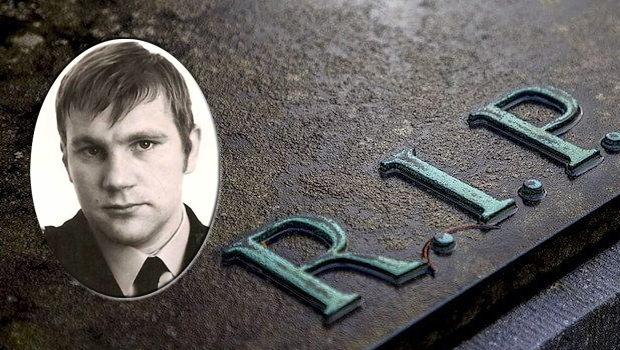
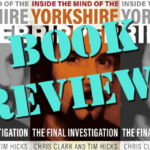
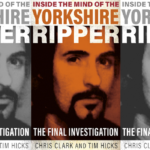

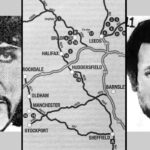
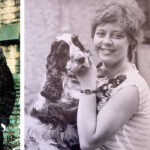
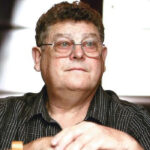
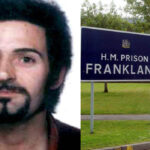

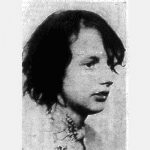
















Comments are closed.